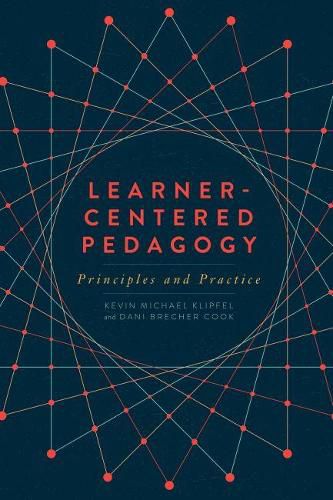Readings Newsletter
Become a Readings Member to make your shopping experience even easier.
Sign in or sign up for free!
You’re not far away from qualifying for FREE standard shipping within Australia
You’ve qualified for FREE standard shipping within Australia
The cart is loading…






This title is printed to order. This book may have been self-published. If so, we cannot guarantee the quality of the content. In the main most books will have gone through the editing process however some may not. We therefore suggest that you be aware of this before ordering this book. If in doubt check either the author or publisher’s details as we are unable to accept any returns unless they are faulty. Please contact us if you have any questions.
Today’s emphasis on metrics and personalization make evidence-based instruction an imperative. In this practice-based handbook, the authors draw on the research of the humanistic psychologist and educator Carl Rogers to present an empathetic approach to information literacy sessions, reference service, and outreach. With an eye on everyday library work, they offer concrete, empirically-based strategies to connect with learners at all levels. Offering plentiful examples of pedagogy in action, this book covers:
6 cognitive principles for organizing information literacy instruction, with sample worksheets and organization tools for instruction planning; how to establish rapport and kindle learners’ motivation; tactics for transcending cite 5 sources and other uninspiring research assignments; educational evidence debunking the mythical perception that because students are skilled at computers and mobile technology, they already know how to do research; questions to keep in mind for inspiring autonomous learning; the power of story, as described by Joan Didion, Brene Brown’s Ted Talk, and educational psychology research; the science behind information overload; and a balanced framework for evaluating specific educational technology tools.
Fusing theory with practice, this handbook is a valuable resource to help every practitioner connect with learners more effectively.
$9.00 standard shipping within Australia
FREE standard shipping within Australia for orders over $100.00
Express & International shipping calculated at checkout
This title is printed to order. This book may have been self-published. If so, we cannot guarantee the quality of the content. In the main most books will have gone through the editing process however some may not. We therefore suggest that you be aware of this before ordering this book. If in doubt check either the author or publisher’s details as we are unable to accept any returns unless they are faulty. Please contact us if you have any questions.
Today’s emphasis on metrics and personalization make evidence-based instruction an imperative. In this practice-based handbook, the authors draw on the research of the humanistic psychologist and educator Carl Rogers to present an empathetic approach to information literacy sessions, reference service, and outreach. With an eye on everyday library work, they offer concrete, empirically-based strategies to connect with learners at all levels. Offering plentiful examples of pedagogy in action, this book covers:
6 cognitive principles for organizing information literacy instruction, with sample worksheets and organization tools for instruction planning; how to establish rapport and kindle learners’ motivation; tactics for transcending cite 5 sources and other uninspiring research assignments; educational evidence debunking the mythical perception that because students are skilled at computers and mobile technology, they already know how to do research; questions to keep in mind for inspiring autonomous learning; the power of story, as described by Joan Didion, Brene Brown’s Ted Talk, and educational psychology research; the science behind information overload; and a balanced framework for evaluating specific educational technology tools.
Fusing theory with practice, this handbook is a valuable resource to help every practitioner connect with learners more effectively.